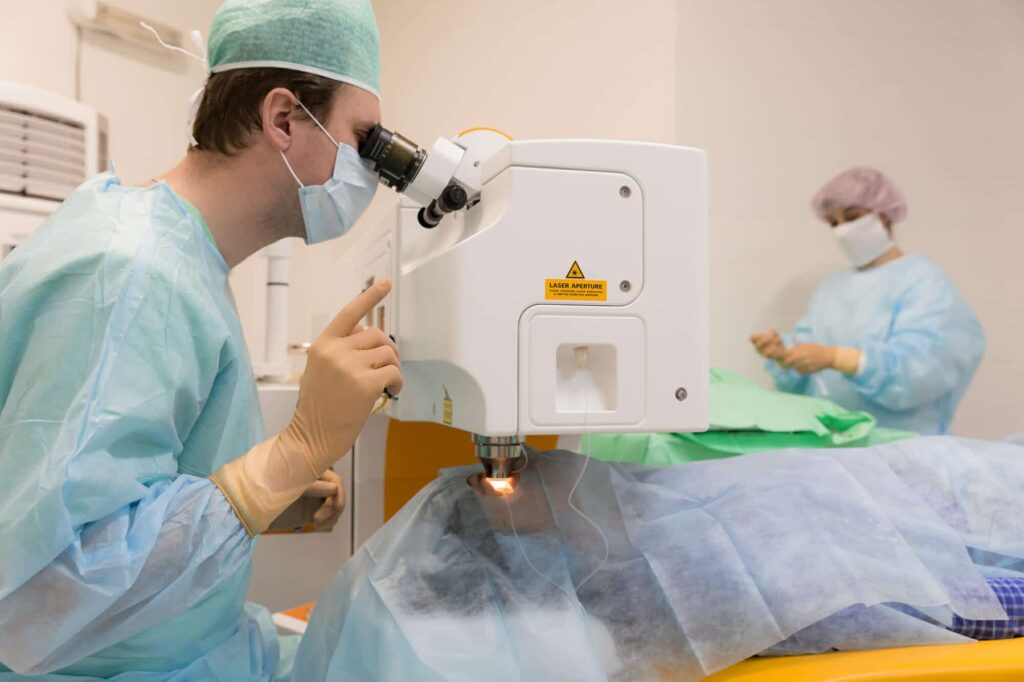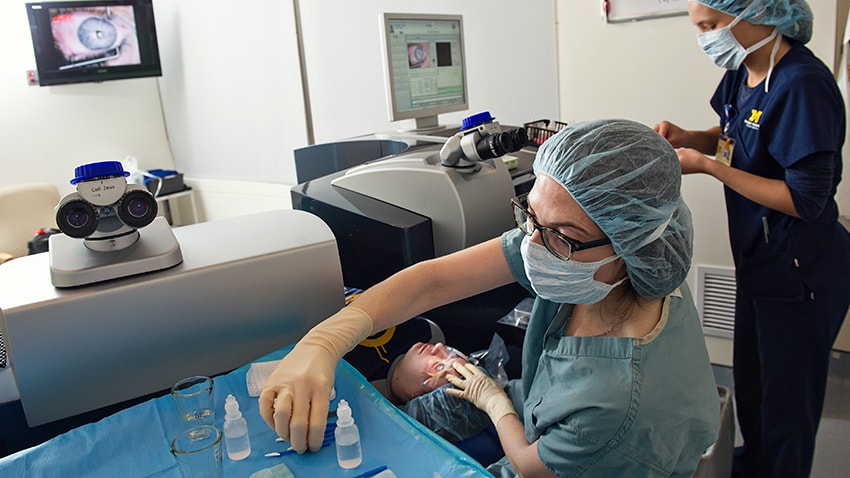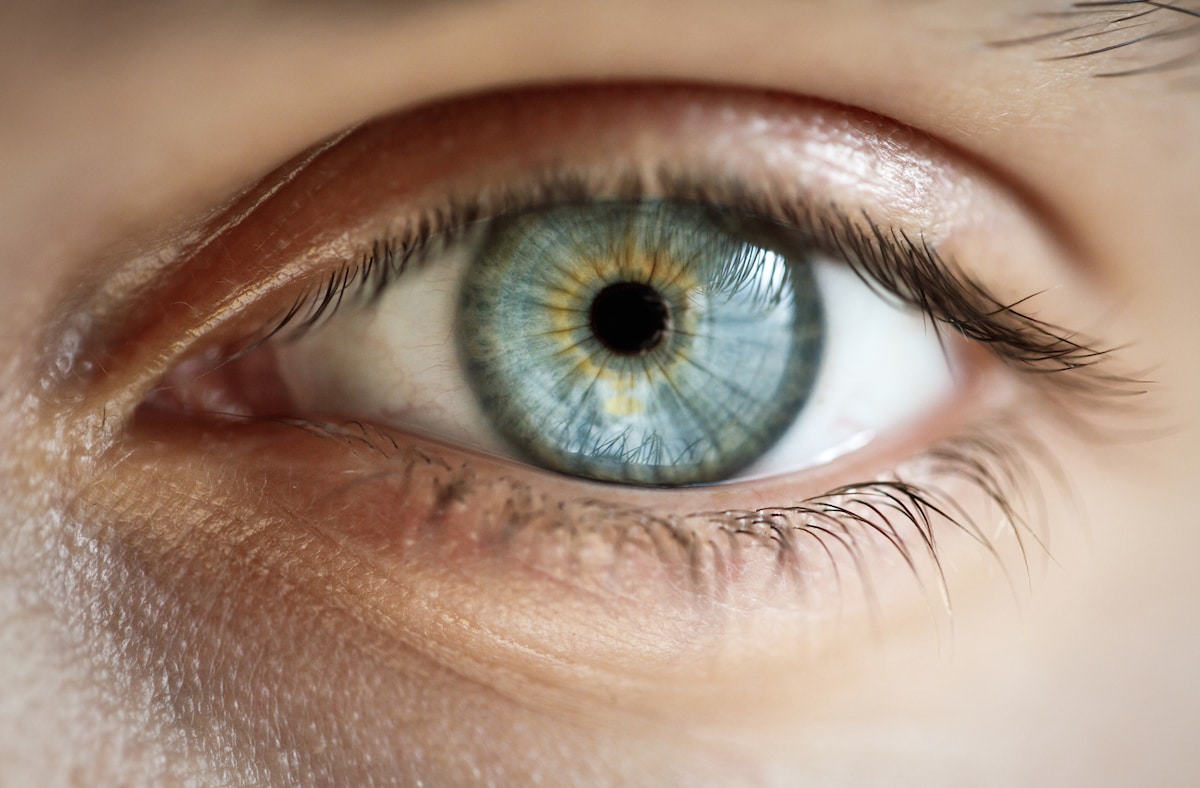Just before performing laser eye surgery, the eye of yours doctor is going to take extensive measurements of your eye and assess your eye’s overall health. Before the surgery, you might be advised to take a bit of sedative. Eye-numbing drops will be presented after you’re laying comfortably on a medical table. Next, he or perhaps she’ll precisely modify the curvature of your respective cornea through a special kind of cutting laser. Each laser pulse eliminates a little slice of corneal tissue, allowing your eye surgeon to possibly flatten or perhaps steepen the curvature of the cornea of yours.
Generally, the doctor is going to form a flap in the cornea and after that raise it as many as improve it. Furthermore, there are actually versions where a rather thin flap is raised and where no flap is created at all. Each method has a set of drawbacks and benefits.
Individual eye doctors might be industry experts in a certain kind of laser eye surgery. The distinctions between them tend to be slight, and not one is unquestionably better than the others. You might wish to investigate the following choices, based on the unique circumstances of yours and preferences:
In situ keratomileusis facilitated by laser (laser eye surgery).
Laser eye surgery, and that is currently essentially the most often done laser eye surgery, involves generating a partial thickness corneal flap plus ablation of the corneal bed working with an excimer laser. And then, the flap is repositioned in its original place. There’s minimal discomfort after surgery, then eyesight recovery usually happens within one to 2 days.

Keratectomy photorefractive (PRK).
Rather of building a flap, PRK scrapes away the top-layer of your skin (epithelium). This corneal abrasion requires 3 to 4 days to cure, and also within the near term, causes mild discomfort and impaired vision. These disadvantages have been found to be healthy through the possible advantage of PRK being much safer for individuals that are more apt to be struck in the eye, such as for instance those active in contact sports, law enforcement, or perhaps the army. Nevertheless, since the threat of eyeball rupture is very very little even with regular laser eye surgery, there’s very likely no significant benefit to PRK. Additionally, laser eye surgery is a more efficient treatment option than PRK for severe nearsightedness (myopia).
Subepithelial keratectomy done using a laser (LASEK).
LASEK treatment is much like laser eye surgery, except the flap is created utilizing a special cutting equipment (microkeratome) plus ethanol exposure on the cornea. Because the treatment allows the doctor to remove much less of the cornea, it’s a great option for all those with thin corneas. LASEK does not have considerable advantages over laser eye surgery in those that are more vulnerable to eye damage.
In situ keratomileusis using an epithelial laser (epi laser eye surgery).
During an epi laser eye surgery operation, your doctor uses a physical blunt blade instrument (epikeratome) to sort the epithelium out of the cornea’s middle layer (stroma) then reshapes the cornea through a laser. Similar to LASEK, this method is noninvasive.
Lenticule extraction through micro incision (SMILE).
This more recent method of refractive surgery reshapes the cornea by building a lens shaped pocket of tissue (lenticule) under the cornea’s surface area by using a laser. The lenticule will be removed via an extremely small incision after it’s been utilized to improve the cornea.
Lenses placed intraocularly.
In order to improve eyesight, corrective lenses (intraocular lenses) might be surgically implanted in the eye. This treatment is done often after cataract surgery (in that the older, cloudy organic lens is removed). Furthermore, it might be a practical option to laser eye surgery for elderly persons who may ultimately need cataract surgery.
Intraocular lenses
Intraocular lenses might also be provided to young patients with serious nearsightedness that are unable to be treated properly with corrective lenses. Nevertheless, for the vast majority of individuals, they’re not a regular choice.
Biopics is a term which describes the healing of nearsightedness or maybe farsightedness by using a blend of methods like intraocular lenses and laser eye surgery.

Your eyesight is in good condition.
Laser eye surgery is usually recommended for individuals who’ve a modest level of refractive oversight and no special visual difficulties.
Your eye doctor is going to ask considerable thoughts about the eye health of yours and do an evaluation of your eyes to make sure you don’t have some issues which may lead to poor results or surgery-related complications. Among them are:
- Keratoconus, tabs condition which causes progressive vision loss and also corneal thinning. Certainly, in case you’ve keratoconus in the family of yours, even in case you don’t have it, use serious care when contemplating elective eye surgery.
- Inflammation of the eye (such as uveitis or keratitis) or even disease of the eye (such as herpes simplex).
- Trauma to the eye or even problems of the eyelids.
- Eyes which are dried out It’s vital to fully understand that laser eye surgery could exacerbate eyes that are dry in case you currently have them.
- Pupils which are big If your pupils are extremely large, especially in light that is low, laser eye surgery aren’t an option. Glare, starbursts, halos, and ghost pictures may all be disastrous unwanted side effects after surgery.
- Glaucoma. The medical operation might lead to a rise in intraocular pressure, aggravating glaucoma.
- Cataracts.
Furthermore, you might pick to reconsider laser eye surgery in case you:
- Have severe nearsightedness or even have already been identified as having an impressive refractive error. The benefits of laser eye surgery might be inadequate to outweigh the risks.
- The eyesight of yours (on the whole) is very beneficial. If your perception is great enough that you simply use glasses or contacts occasionally, the advantages of surgery might outweigh the risks.
- You’ve developed age related modifications in the eyes of yours, leading to less-than-perfect vision (presbyopia).
- You engage in actual physical contact sports on a consistent basis. In case you usually sustain blows to the facial skin and eyes, like when taking part in fighting styles or maybe boxing, laser eye surgery might not be a suitable choice for you.
Just how healthy have you been?
Furthermore, your eye surgeon is going to ask thorough health-related inquiries. Certain unrelated medical disorders may enhance the risks related to laser eye surgery or even make the outcome less predictable.
• Any condition or illness that compromises the immune system of yours, inhibits the capacity of yours to recover, or causes you to more vulnerable to infections, like rheumatoid arthritis, HIV, lupus, and any other autoimmune diseases.
• Any time you’re on an immunosuppressive medicine.
• Uncontrolled diabetes increases the chance of yours of developing issues such as for instance diabetic retinopathy.
Is the lucidity of your perception unflinching?
If you’ve myopia, the vision of yours could continue to deteriorate throughout the adolescent years of yours, or maybe even more time, necessitating frequent changes to the glasses of yours or perhaps contact lenses prescription. As a result, anyone looking for laser eye surgery needs to be no less than eighteen years old, ideally older.
Specific health conditions and medications – pregnancy, nursing, as well steroid medications – may bring about short-term visual changes. Before pursuing laser eye surgery, hold out until your eyesight has stabilized.
Is it financially possible?
The bulk of insurance companies consider laser eye treatment being an elective functioning and also thus don’t pay the price. Bear in mind of the cost of the process.
Other articles:
The Accuracy of Rapid Antigen Testing
Signs that may show that one needs a rapid antigen test

